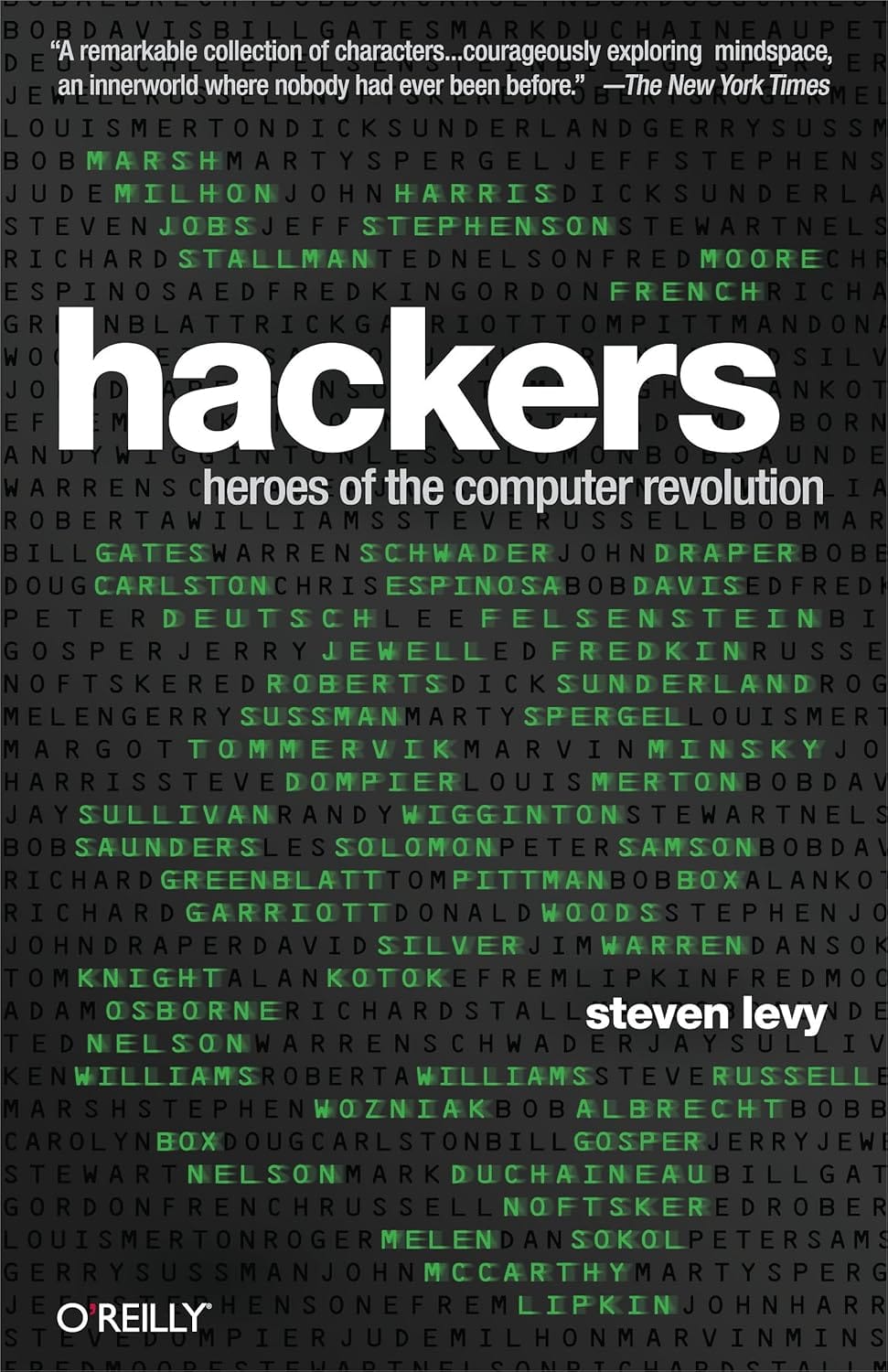Hackers - Heroes of the Computer Revolution
If you are still looking for a Christmas present for the nerd in your life, this would be a good one.

Reading this book brought back a lot of joyful of my early forays dealing with computers. Reading about the early computer pioneers and their sense of optimism and their sense of wonder really just warmed my soul. In that way it reminded me of this book. It also built upon a lot of the nostalgia and history that I had absorbed from this book.
3 ages
This book talks about the early days of computers from roughly the 1960s through the 1980s. It treats each decade as it's own epoch with it's own themes. Optimism was definitely a constant theme throughout all of them.
1960s - collaboration
The 60's was the defining era of the Hacker Ethic. It was about collaboration. Software was very freely shared and everyone collaborated in building it. No one was really selling it. They were just caught up in solving the problem and that became it's own goal. They never thought about or considered how to monetize it. There was also a feeling of meritocracy - a division between those who got it and had a beep understanding and could make the computer do their bidding and everyone else. There was also an idea of software as an art, not just a tool to solve problems but something elegant. A lot of the ideology was driven by the technology of the day. At that point computers were mainframes in some college lab, so that weren't generally accessible to everyone.
1970s - computing for the masses
The 70's was defined by the shrinking of hardware. This was moving towards personal PCs. The book talks a lot about the Homebrew Computer club and the Community Memory project in San Fransisco. There was more of a focus on hardware during this era and large focus on making computing accessible to more people as opposed the more elitist 60's. We start to see some commercialization at this stage. It talks about some issues with Bill Gates and people distributing copies of his version of BASIC.
1980s - commercialization
The 80's were very much about commercialization and its struggle with the Hacker Ethic. The book talks about the nascent computer games industry and some of the challenges there. A lot of the developers were happy to give their games away for free while others were trying to figure out how to monetize them. The hardware is continuing to evolve and you are starting to see more tradeshows and publications. It sees a little bit more of the commercialization of software. It goes from being more of an art project, done for its own sake to becoming a commercial product that just has to be good enough to compete in the marketplace. There's a lot of friction around that.
Stallman and GNU
The book ties it all together at the end by talking about Richard Stallman and the GNU project. Stallman is a polarizing character. There are lots of reasons not to like him. However this book was first written in the 90s before a lot of the controversy around him. It's also hard to write this type of history without mentioning him. Even if you dislike him (and many do), he certainly had an impact. The last chapter of the book uses Stallman as kind of a symbol of the revival (or perhaps the holding onto) of the original hacker spirit of openness and freedom. He acts as a bit of a foil to the commercialism that had kind taken over at the end of the 80s.
Parallels to the rise of the internet
Unfortunately the book stops at the end of 80s. It misses the whole rise of the internet. I think the internet kind of took a similar arc to the book. In the 90's, it was new. It was all about collaboration and connection. People learned how to create websites by looking at the source code of other websites and copying them. Late 90's early 2000s desktop PCs took off and most homes got internet access. Then in the late 2000's along came the iPhone - a piece of hardware that revolutionized things and brought the internet to more people and into their pockets. It changed the way the masses interacted with the internet. E-Commerce became commonplace. And then in the late 2010s, the corporations took over again and surveillance capitalism and the great enshittification began. I see a very similar arc there.